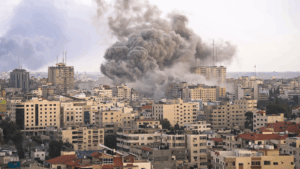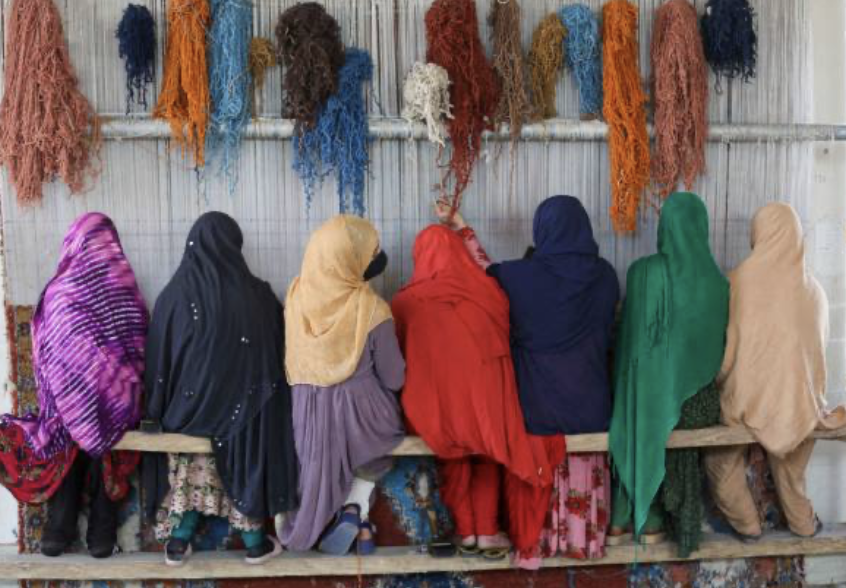The Taliban emerged in the early 1990s in the chaotic context of the Afghan civil war, after the Soviet withdrawal. Initially supported by certain sections of the population as a means of restoring security, their regime quickly became known for its extreme prohibitions: women were not allowed to work or study, public punishments were frequent, and any political opposition was crushed. Driven from power after the American intervention in 2001, they continued their struggle as an armed insurgency before regaining control in 2021.
Women: The primary victims ..
Since their return, the Taliban have imposed a series of drastic restrictions on women’s rights, despite the progress made over twenty years in areas such as education, employment and political participation.
- Restrictions on freedom of movement and clothing: Women cannot travel long distances alone and must be accompanied by a male guardian (mahram). Wearing the full veil is compulsory in public spaces, further reducing their visibility in society.
- Education banned for girls beyond primary school: In March 2022, the Taliban banned girls from secondary education and, in December of the same year, from universities. This decision drew international condemnation, with the United Nations describing it as a ‘crime against the future of Afghanistan’.
- Ban on working in NGOs and public institutions: In December 2022, women were banned from local and international non-governmental organisations (NGOs), depriving thousands of them of vital employment. These bans have also had disastrous consequences for humanitarian services, which are often run by women workers.
.. of a deeply oppressive and restrictive regime
- Ban on the right to speak: Afghan women can no longer freely express their opinions, either in public or in the media. Female voices are systematically stifled. Female journalists have been sacked or forced to work under severe restrictions, such as the compulsory wearing of the niqab on screen. In some cases, women who have peacefully protested for their rights have been arrested, intimidated or disappeared.
- Banning women from public places: The Taliban have banned women from many public places, including parks, gymnasiums and even public baths, which are essential in some regions where there are no domestic facilities. These measures are intended to further isolate them from society and limit their role to that of housewives.
- Restricted access to healthcare: Access to healthcare for women is severely hampered. In Taliban-controlled areas, women can only see male doctors if they are accompanied by a mahram, which makes medical emergencies very difficult. The situation is exacerbated by the decline in the number of female doctors, who are themselves victims of professional restrictions.
- Ban on art and cultural expression: Women are no longer allowed to participate in artistic or cultural activities, including painting, literature and music. Female artists have been forced into exile or to give up their practice, under threat of repression.
Widespread cultural and social repression
The Taliban regime also imposes severe restrictions that affect the whole of society, creating a climate of control and cultural deprivation. Non-religious music, considered incompatible with their vision of Islam, is strictly forbidden, as are films or any other entertainment deemed immoral. Sport, once a source of unity and pride, has become inaccessible to women, who are forbidden to play or even attend sporting events. Furthermore, the strict separation of the sexes in public spaces has led to the systematic marginalisation of women, to the point where they no longer have access to places such as parks or gymnasiums, relegating them ever further to the shadows of society.
Alarming consequences
These restrictions not only deprive women of their fundamental rights, they also jeopardise the future of the entire country. The marginalisation of women exacerbates poverty, hampers economic development and hampers access to international aid, which is crucial in a country in humanitarian crisis.
The Taliban regime illustrates a spectacular regression in human rights, particularly for women. While the international community looks for ways to engage in dialogue and bring pressure to bear, the Afghan people, and especially their women, are paying an immeasurable price for this authoritarian and misogynistic governance.










